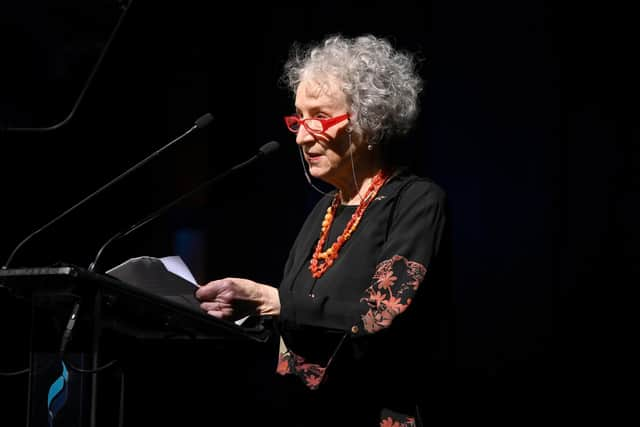Book review: Fourteen Days, edited by Margaret Atwood and Douglas Preston
This is a rather intriguing puzzle box of a book. The title refers to a fortnight in lockdown in a down at heel Manhattan apartment building during the Covid pandemic. In the evening, the residents start to come together, on the roof and socially distanced, to swap stories. But what is of interest is the game of it. Different writers provide stories – with a frame narrative conceived by one of the editors, Douglas Preston. There are 36 authors in total, and thus more than one story per day, and more than one story per some of the authors. And here’s the catch: the stories are anonymous. Those who cannot wait to find out who wrote what can look at the index of contributors at the end to sate their curiosity, but where is the fun in that?
A word to the wary: the book is a “celebration of the power of stories” from the Authors Guild – an American organisation – and as a result some of the authors do not have British publishers, which makes playing guess the scribbler a little more difficult. On the other hand, there are stories I enjoyed so much that, once I’d found out who had penned them, I resolved to look out for more work by that author in future.
Advertisement
Hide AdThe real fun of the game derives from the breadth of the contributors. Some, such as Margaret Atwood, are “literary” figures. I have read one book by her co-editor Preston – The Lost Tomb, And Other Real-Life Stories Of Bones, Burials, And Murders – but given his other titles include The Codex, Tyrannosaur Canyon, The Kraken Project – I think it would be fair to categorise his work as “genre”. So round one, at least, is trying to spot the high-brow from the mass-market. Can you tell the difference between Diana Gabaldon and Meg Wolitzer, or Dave Eggers and John Grisham, Tess Gerritsen and Emma Donoghue, or Celeste Ng and Erica Jong?
Although the introduction tries to distance this from other “anthology novels” such as The Decameron and The Canterbury Tales (which is a poem, and an unfinished one at that), I do not find the coinage “a collaborative novel” or a “novellus” particularly useful. The characters are assigned nicknames – The Lady With The Rings, Amnesia, Eurovision – based on notes left by the former superintendent. The novel is narrated by the new superintendent, and it is difficult to see how the stories were assigned. Did the individual authors conceive of their separate stories as narrated by the same person?
It is, in some cases, easy to link story to author. A “story” about Shakespeare during the plague-related closure of the theatres is, surprise, surprise, by the Shakespeare scholar James Shapiro. Likewise, there is a very good story about academia and the canon and experimental poetry which is by the very good experimental writer Ishmael Reed. The reader might become slightly uneasy at their own propensity to make assumptions about a given, particularly when it comes to the ethnic background. Is it a given that a disconcerting and melancholy story about a Chinese exchange student is by Weike Wang?
Although some of the pieces are simply bar-room anecdotes or reminiscences, and there are a fair few which have a supernatural patina, there are some stand-out pieces. A story about making an auction house evaluation of a dying rich woman’s possessions has a quality not unlike the writing of John Cheever. It has a haunting, rueful feel about peremptory judgements and what constitutes value. Likewise, there is a kooky weirdness to the “Elijah Vick” story which manages to incorporate both left-handed guitarists and gator gars – a particularly toothsome species of fish, which I had to look up to prove to myself they were real.
The various “Pardner” stories are among the most interesting, especially the appealingly strange “Ghost Cracker and Rosie”. The frame allows for the denizens of the apartment building to discuss the stories, and the nature of storytelling, and although they may have some differences they all agree that stories are a jolly good thing.


I must confess there is a element of backslapping catharsis about it all. By chance, at the same time I read The Book Censor’s Library by Kuwaiti author Bothayna al-Essa, which despite also dealing with the power and persistence of literature has a far more caustic take on the “good” of literature. A final word of warning. If you do read it from start to finish, you might wish to skip the ending. I read it hoping against hope it didn’t “pull a Bobby Ewing”.
Advertisement
Hide AdFourteen Days is enjoyable enough, and has a dip-into-able quality. However, it is in the nature of such a book that no reader will enjoy every story.
Fourteen Days, edited by by Margaret Atwood and Douglas Preston, Chatto & Windus, £20